Note: The research for all of the following news stories came from “Shelf Life,” A Cook Memorial Public Library District Blog, except for “JFK Campaigned at Cook Park” and “Rouse Murders.”
Woman’s Land Army (1917)
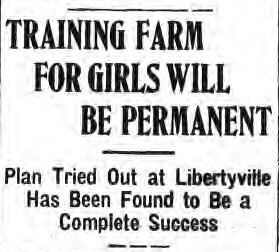
This part of a newspaper article from 1918 describes the prosperity of the Woman’s Land Army.
During World War I, it was common for city girls to replace the farm jobs of their families while they were fighting in the war. This pursuit was called the Woman’s Land Army of America (WLAA). The WLAA was the foundation for other women’s movements in America. Tending to the farms was not just a temporary project to provide food for the people; it was also meant to train women to work in agriculture so they would develop the skills necessary not only while their families were away, but in the future. The Illinois WLAA recruited “farmerettes” to work on the farms. They needed donations, however, for agricultural equipment because there was no government funding. Six Libertyville farmerettes brought their tractors to Chicago to level Grant Park’s grounds for a war exposition. The training farm in Libertyville seemed to have a promising future. According to Sonia Schoenfield’s blog post on Shelf Life, “The Illinois Training Farm of Libertyville proved to the world that women could successfully farm, and proved to the women that such work was fulfilling, noble and a worthy result of a single year’s farm output.”
Train Robbery (1924)
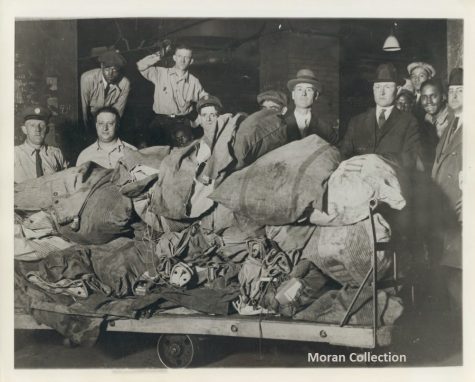
Some postal bags were recovered after the robbery, however it was reported that only half of the $3 million stolen was retrieved.
On June 12, 1924, the largest train robbery in U.S. history occurred in Rondout on the Milwaukee Road line. The heist was completed by an eight-man crew, including professional thieves and a corrupt law enforcement office. Many trains in the twentieth century would carry the post office’s cash and other valuables. Around 10 p.m., the train slowed in Rondout, where two of the thieves “walked out from behind their hiding place dressed as railroad workers, holding red lanterns to get the train to stop. The rest of the gang had arrived driving stolen Cadillacs. They lined the cars up to provide light for the robbers to see what they were doing,” said Thomas Hiller’s blog post on “Shelf Life.” After forcing the engine crew to stop the train, the thieves moved 63 postal bags into the stolen cars in less than 25 minutes. Within four months of the robbery, the police had caught all of the robbers, who would soon be on trial. All eight men were convicted; however, they received light sentences. It was reported that $1.5 million of the $3 million was recovered and the remainder of the money’s location is still a mystery. The film The Newton Boys is based on some of the thieves’ careers involving this robbery.
Floods (1938, 1960, 1962)

The 1938 flood resulted in $1 million of damage, severely affecting Libertyville citizens and the town as a whole.
Libertyville was affected by three major floods within a 24-year span, in the years of 1938, 1960 and 1962. In 1938, the flood was caused by an abundance of rain in a short period of time, and the amount of water accumulated quickly increased. The water levels caused approximately $1 million worth of property damage. Butler Lake was flooding and the water had flowed onto Lake Street had been closed until things returned to normal. Despite the waters rose so quickly, only one life was lost. In the spring of 1960, Libertyville was hit hard with another flood. The prior winter had received a great deal of snow that stayed through March, but the rapid increase of temperature melted the snow, causing major flooding. The Des Plaines River rose a significant amount, especially on April 2 when a rainstorm caused it to rise six inches in eight hours. The damage hit the new 150-house subdivision called North Libertyville Estates. Around 100 households were displaced and individuals had to stay elsewhere in the meantime. Two years later, in March of 1962, a very similar flood impacted Libertyville because of meltwater from snow. Similar to the flood in 1960, North Libertyville Estates was effected. Even though “the village hadn’t wanted the subdivision built so close to the Des Plaines River at all,” said Thomas Hiller on his “Shelf Life” blog post. Again, 100 to 120 houses were displaced, but citizens had more time to get out of the way of the flood since there wasn’t any additional rain like in 1960.
JFK Campaigned at Cook Park (1960)
Information from the Libertyville Review’s 2008 article, “When JFK campaigned in Libertyville.”
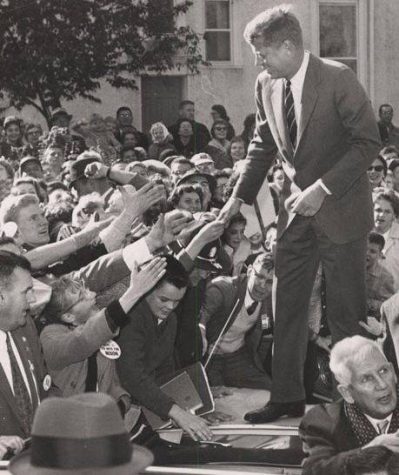
John F. Kennedy campaigned in Libertyville at the Ansel B. Cook Home prior to his election in 1960.
John F. Kennedy was the 35th President of the United States who ran against his Republican opponent Richard Nixon in the 1960 election. Kennedy defeated Nixon in one the closest presidential elections in history, according to ushistory.org. The Democratic presidential candidate traveled to the traditionally Republican Lake County by motorcade. On Oct. 25, 1960, Kennedy gave a brief address in Cook Memorial Park around 10:50 a.m. The crowd was estimated at 7,000 people, many of whom held red, white and blue posters and signs. A Kennedy banner also hung from the pillars of the then-named Cook Memorial Library. When Kennedy addressed the crowd, he “received a howling ovation,” according to The Independent Register newspaper. The candidate continued his campaign after his Libertyville visit and was elected as the U.S. president two weeks later. The video of Kennedy’s speech at Cook Memorial Park can be found on YouTube.
Wagon Train (1976)
Wagon trains traveled across the country to celebrate America’s 200th founding anniversary in 1976. A series of wagon trains went state to state from West to East on a pilgrimage. A train containing 440 covered wagons arrived at the Lake County fairgrounds on May 4, 1976. These wagon trains traveled at only three miles per hour. The next morning, the train arrived in Libertyville, traveling across the main street. Eventually, that train would meet the other wagon trains “at Valley Forge on the 4th of July, 1976, where President Ford gave a speech proclaiming that ‘our American adventure has just begun,’” according to Joe Murrow’s blog post on “Shelf Life.”
Rouse Murders (1980)
Information from a 2014 Drops of Ink article, “Libertyville’s Own ‘American Horror Story.”
A mansion in unincorporated Libertyville had experienced three separate horrific events within a 22-year time frame. On June 6, 1980, Libertyville civilians Bruce and Darlene Rouse, who owned a chain of gas stations and cable services, were murdered in their bedroom within their 13-bedroom mansion. The case had remained unsolved until 15 years later when their youngest son, Billy Rouse, confessed on camera to the murder of his parents. The night of the murder, Billy recalled getting into a fight with his mother after she smelled alcohol on him and threatened to send him to military school. At 2:30 a.m., Billy took his father’s shotgun and shot his mother in the face and then shot, stabbed and beat his father in their bed. In August 1996, Billy was sentenced to 80 years in prison. Investigation Discovery, a television network that focuses on crime documentaries, aired an episode on Oct. 10, 2015, titled “Murder Mansion,” which featured the Rouse Murder. Members of the Chicago mob later owned the Rouse’s mansion and opened a cocktail lounge and casino. “In 1983, bookkeeper Robert Plummer was strangled and beaten to death on the stairway for working for a rival organization,” reported previous DOI article. Then in 2002, the new residents of the house were away on vacation when their house mysteriously burned down.
Note: The original print version of this story incorrectly identified where JFK spoke. This online version had updated that information to reflect that he spoke at the then-named Cook Memorial Library.



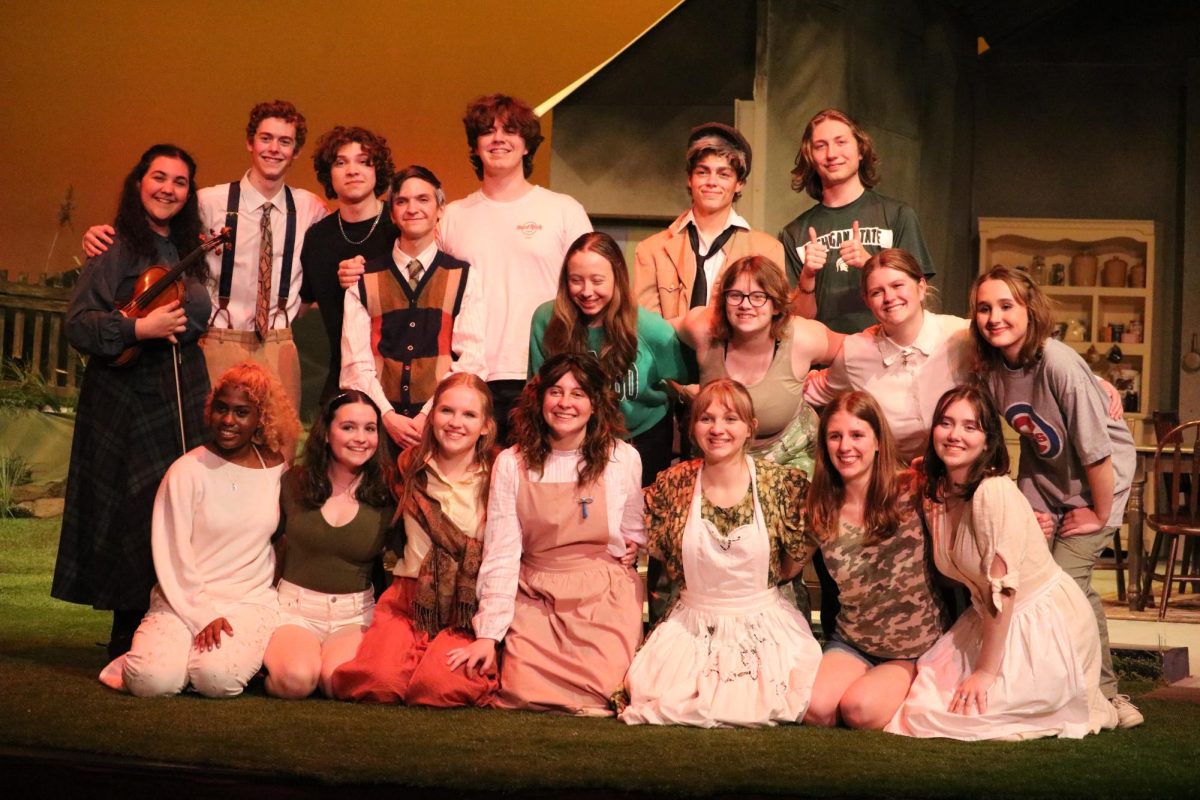


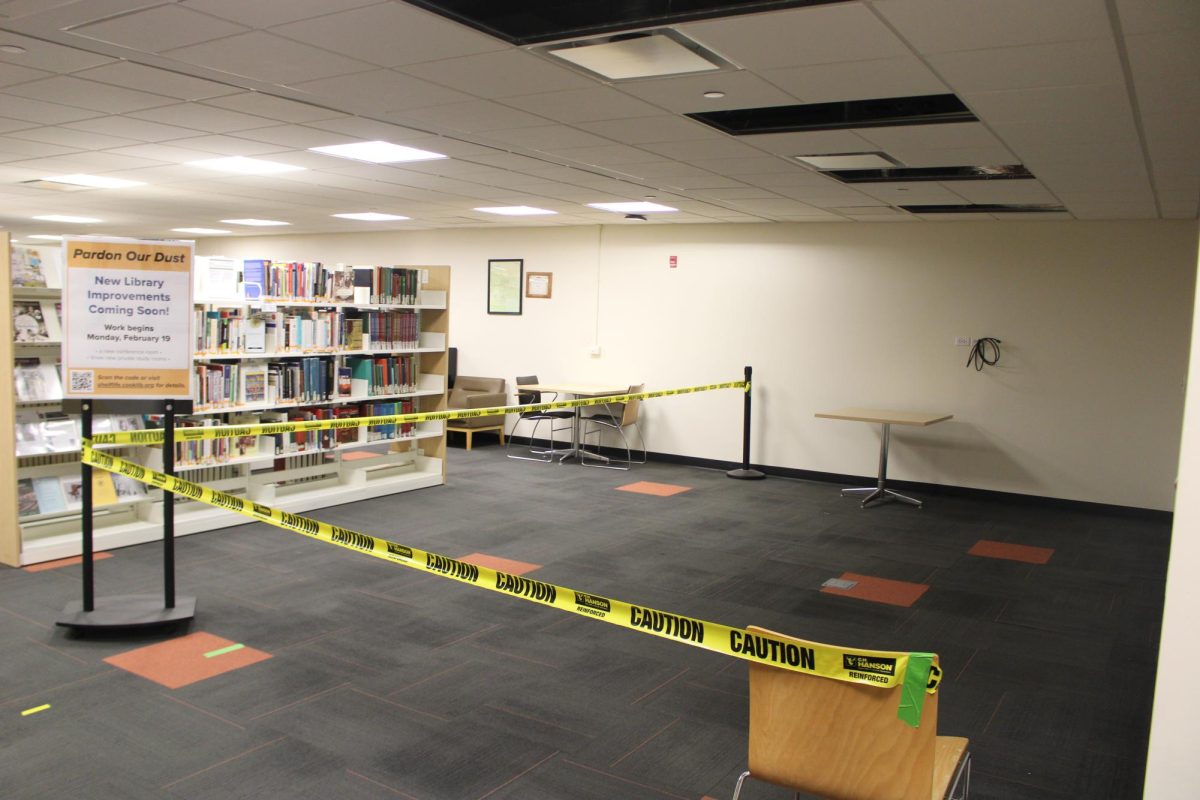



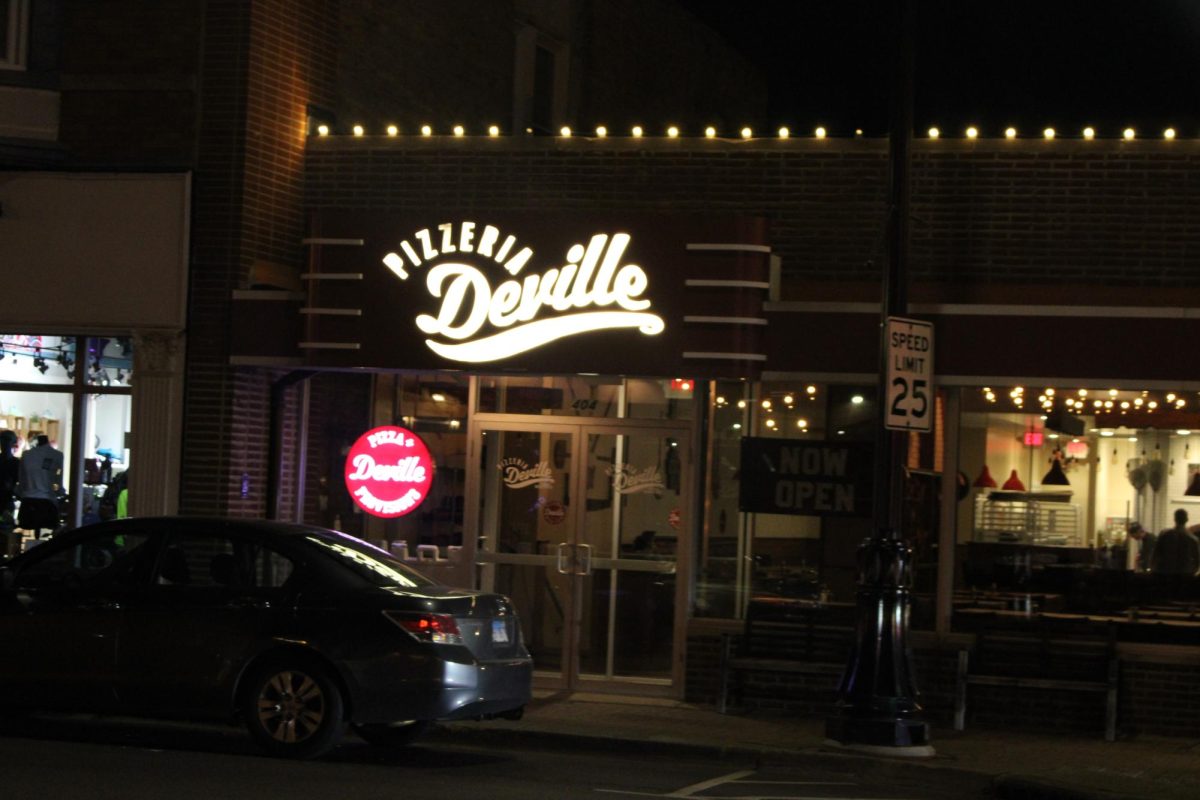
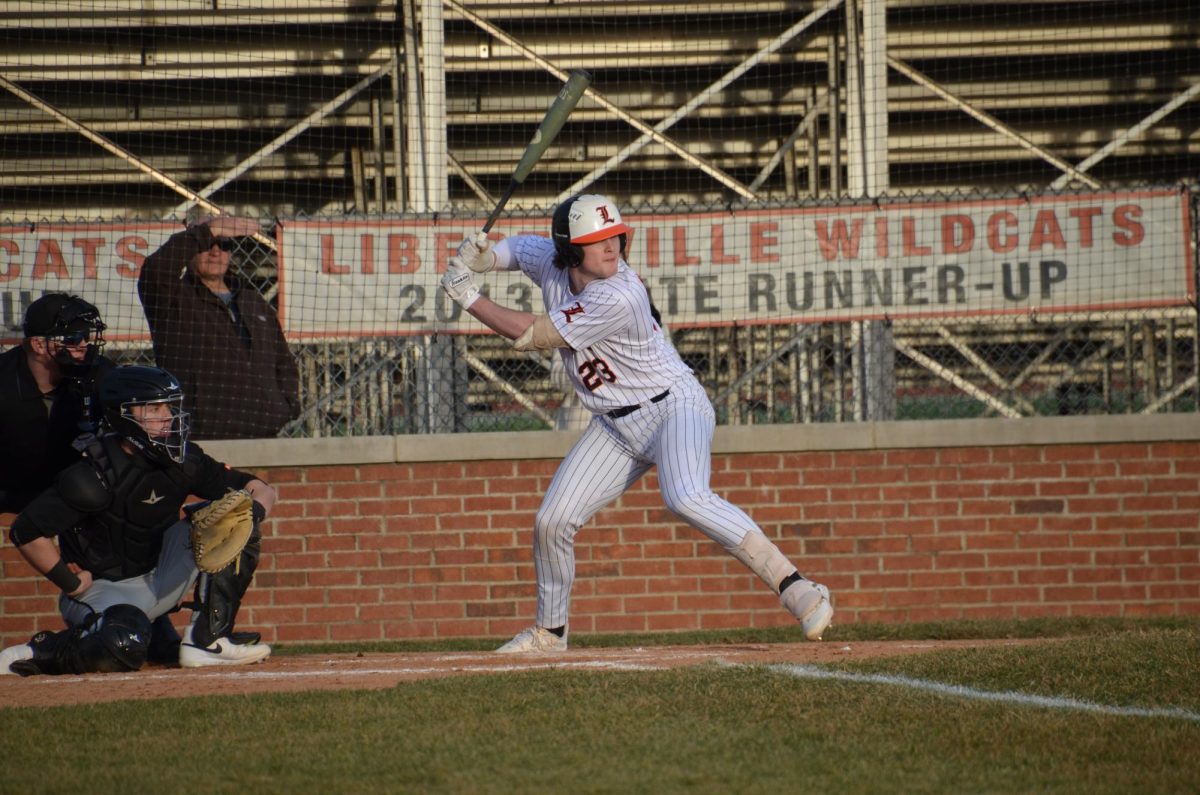
![For the final piece, a combination of Symphony Orchestra and Wind Ensemble played an extravagant song by Paul Hindemist. Flute soloist Dakota Olson had her moment highlighted within this song. “[My solo] was definitely challenging but it was fun too,” Olson said.](https://www.lhsdoi.com/wp-content/uploads/2024/03/amy-and-joey-shot-1200x800.jpg)




